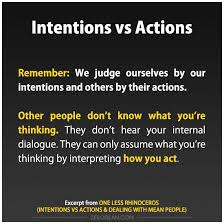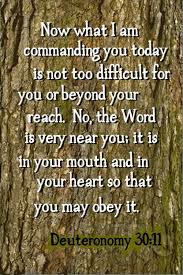As I wait impatiently for my sabbatical that is under contract with a publisher to return from the editor, I’ve been thinking about some of my blog essays that “made the cut” in some sense to appear in revised form in my book-to-be. One of these essays is about the challenge of cultivating the right attitude with which to enter the world on a daily basis. I learned a lot about this from Rami Nashishibi when he was interviewed a year or so ago on Krista Tippett’s “On Being.”
Regular readers of this blog know that I am a fan of Krista Tippett’s radio program “On Being,” a show that I frequently catch several minutes of on Sunday mornings as I drive the fifteen minutes from our house to the early show at church. A few weeks ago, her guest was Rami Nashashibi, Founder and Executive Director of the Inner-city Muslim Action Network, or IMAN, in Chicago. He’s also a Visiting Assistant Professor in Sociology of Religion and Muslim Studies at Chicago Theological Seminary.
On Being: A New Coming Together
Tippett describes Nashishibi at the beginning of the interview as using
Graffiti, calligraphy, and hip-hop in his work as a healing force on the South Side of Chicago. A Palestinian-American, he started his activism with at-risk urban Muslim families, especially youth, while he was still a college student. Now he’s the leader of a globally-emulated project converging religious virtues, the arts, and social action. And he is a fascinating face of a Muslim-American dream flourishing against the odds in post-9/11 America.
Not surprisingly, the conversation was wide-ranging, fascinating, and introduced me to a number of matters and issues that are well outside of my usual frame of reference. What particularly grabbed me, however, was a brief exchange toward the end of the interview, just as I was pulling into my usual parking spot at Trinity Episcopal.
Krista Tippett: I told you I was on your Twitter feed, and I love this. I think it was really recent. You wrote: “My 4-year-old discovers the spiritual power of her name as she looks over and seriously asks, ‘Daddy, do you have the right niyyah?’” What does niyyah mean?
Rami Nashashibi: So niyyah — in kind of Arabic-Muslim parlance — is spiritual intention.  And oftentimes — it’s both the Swahili and Arabic word. And oftentimes, Muslims are always asked before they pray, before they do any act of service, before they engage in anything that has any kind of sense of worship associated with it, is it being done for the right niyyah? Is it being done for the right purpose? Are you attempting to get fame or credit? I think, yes, there was a song that had used her name in that way and the light went off in the middle of it and turned over to me on the couch and asked me that question. Honestly, I looked at her and I didn’t have an answer for her for I think a good 20 seconds. She nodded her head and she said, “No, probably not.”
And oftentimes — it’s both the Swahili and Arabic word. And oftentimes, Muslims are always asked before they pray, before they do any act of service, before they engage in anything that has any kind of sense of worship associated with it, is it being done for the right niyyah? Is it being done for the right purpose? Are you attempting to get fame or credit? I think, yes, there was a song that had used her name in that way and the light went off in the middle of it and turned over to me on the couch and asked me that question. Honestly, I looked at her and I didn’t have an answer for her for I think a good 20 seconds. She nodded her head and she said, “No, probably not.”
And I said, “What?” We then had a conversation. I said, “Well, at least keep me in your prayers that I have.”
This four-year-old’s simple question—Do you have the right niyyah?—has stuck with me ever since. So has her response to her father’s lack of response—“No, probably not.” It’s hard enough to figure out what the right thing to do is on a daily basis; adding in that it should be done with the right intention, for the right reasons, seems like piling on. As a philosophy professor who has taught introductory ethics courses more times than I care to count over the past twenty-five years, I have thought about this a lot. When I ask my students “What is more important—what you do, or why you do it? Actions or intentions?” they usually split roughly down the middle.
As a philosophy professor who has taught introductory ethics courses more times than I care to count over the past twenty-five years, I have thought about this a lot. When I ask my students “What is more important—what you do, or why you do it? Actions or intentions?” they usually split roughly down the middle.
And so do the great moral philosophers. There is the tradition of those who say that only results matter (since they can be observed and measured publicly) and intentions are irrelevant. Then there is the other tradition (spearheaded by Immanuel Kant) who say that results are irrelevant—the true measure of the moral life is internal. Were your intentions pure? Was your heart in the right place? If so, then you are morally in the clear, even if the results of your intended action go “tits up” (to quote my brother-in-law).
 My students are pretty smart, and it doesn’t take very long before they realize that the “results or intentions” question is a false dichotomy. Because in truth, normal human beings care about both. If morality is just about doing the right thing, then the person who identifies the things that should be done and does them—even if for all of the wrong reasons, such as self-righteous smugness or the praise of others—is morally in the clear. But Nashashibi’s four-year-old daughter is right—we want not only the right thing to be done, but for it to be done with the right niyyah, the right intention or reason. And that sucks, because it takes things straight into the human heart. For those who profess the Christian faith, it also takes things straight into the world of grace.
My students are pretty smart, and it doesn’t take very long before they realize that the “results or intentions” question is a false dichotomy. Because in truth, normal human beings care about both. If morality is just about doing the right thing, then the person who identifies the things that should be done and does them—even if for all of the wrong reasons, such as self-righteous smugness or the praise of others—is morally in the clear. But Nashashibi’s four-year-old daughter is right—we want not only the right thing to be done, but for it to be done with the right niyyah, the right intention or reason. And that sucks, because it takes things straight into the human heart. For those who profess the Christian faith, it also takes things straight into the world of grace.
The first thing I ever learned from Scripture about the human heart as a young boy was from Jeremiah : “The heart is deceitful above all things and desperately wicked—who can know it?” Far less attention was paid to the Psalm that is recited in liturgical churches during the Ash Wednesday liturgy: “Create in me a clean heart, and renew a right spirit within me. Cast me not away from your presence, O Lord, and take not your Holy Spirit from me. Restore unto me the joy of your salvation, and renew a right spirit within me.” Straight from the Jewish scriptures is both the problem of and the solution for right intentions. As a flawed human being, I am incapable of doing things for the right reason, but help is available. Through divine grace the heart is changed and turned toward the good. Rami Nashishibi’s daughter is right when she doubts that her dad has the right niyyah, so long as that depends on his own energies and strength. But when the divine gets involved, everything changes.
: “The heart is deceitful above all things and desperately wicked—who can know it?” Far less attention was paid to the Psalm that is recited in liturgical churches during the Ash Wednesday liturgy: “Create in me a clean heart, and renew a right spirit within me. Cast me not away from your presence, O Lord, and take not your Holy Spirit from me. Restore unto me the joy of your salvation, and renew a right spirit within me.” Straight from the Jewish scriptures is both the problem of and the solution for right intentions. As a flawed human being, I am incapable of doing things for the right reason, but help is available. Through divine grace the heart is changed and turned toward the good. Rami Nashishibi’s daughter is right when she doubts that her dad has the right niyyah, so long as that depends on his own energies and strength. But when the divine gets involved, everything changes.
The mystery of grace is exactly that—a mystery. Divine grace enters the world through flawed human beings, strangely enough, and there isn’t enough time to try to figure it out. Grace is something to be channeled, to be lived, not systematized and turned into dogma or doctrine.  The poet Christian Wiman writes beautifully about this. Through many years of cancer treatments, he learned to hear God, then to channel God, in the most unlikely places, the very places where divine grace apparently lives. Wiman writes that
The poet Christian Wiman writes beautifully about this. Through many years of cancer treatments, he learned to hear God, then to channel God, in the most unlikely places, the very places where divine grace apparently lives. Wiman writes that
God speaks to us by speaking through us, and any meaning we arrive at in this life is composed of the irreducible details of the life that is around us at any moment. . . . All too often the task to which we are called is simply to show a kindness to the irritating person in the cubicle next to us, say, or to touch the face of a spouse from whom we ourselves have been long absent, letting grace wake love from our intense, self-enclosed sleep.
The right niyyah is not the result of struggle, training, or calculation. And as the author of Deuteronomy tells us,
Nor is it beyond the sea, that you should say, “Who will cross the sea for us to get it for us and make us hear it, that we may observe it?” But the word is very near you, in your mouth and in your heart, that you may observe it.
All I have to do to have the right niyyah is to open my heart, open my mouth, and let it out.
To experience grace is one thing; to integrate it into your life is quite another. What I crave now is that integration, some speech that is true to the transcendent nature of grace yet adequate to the hard reality in which daily faith operates.












